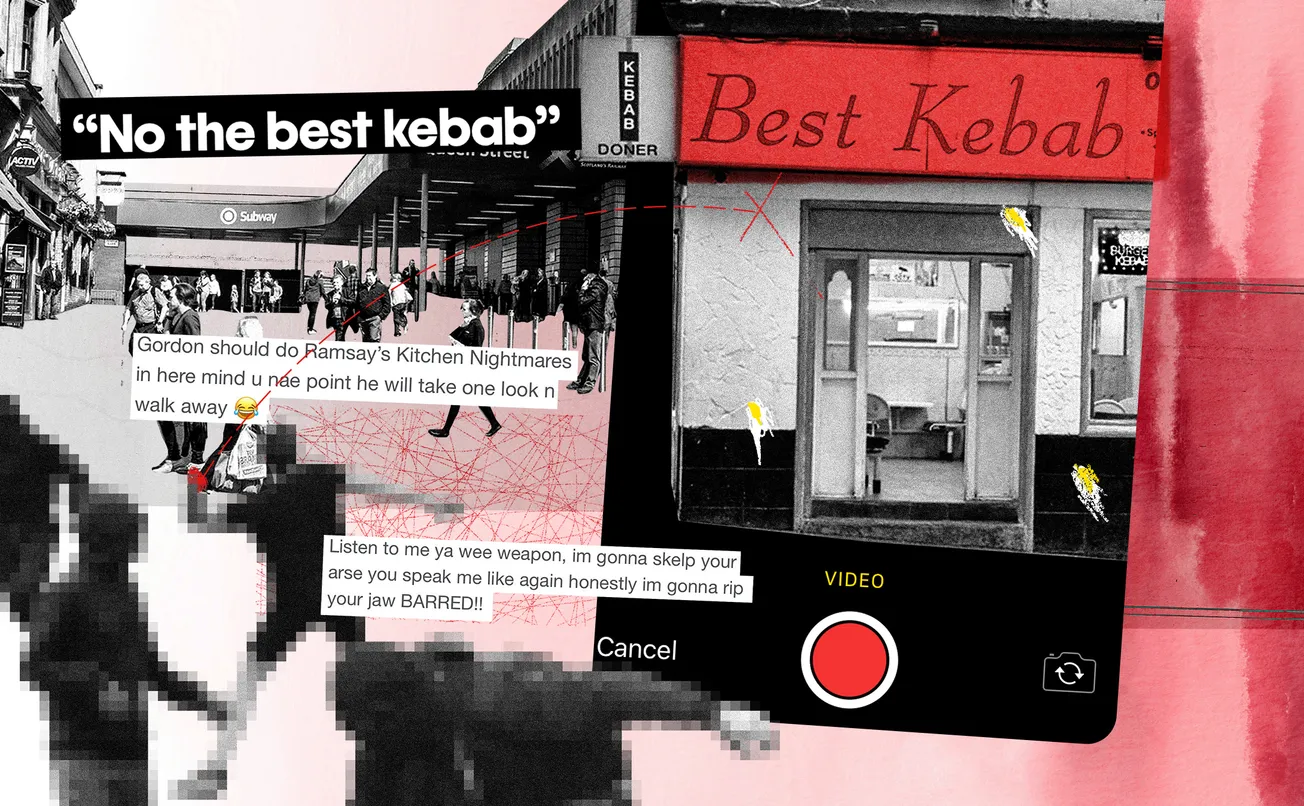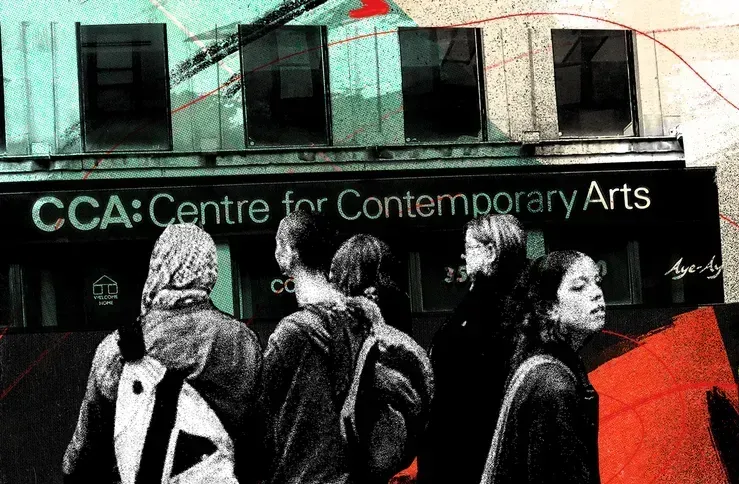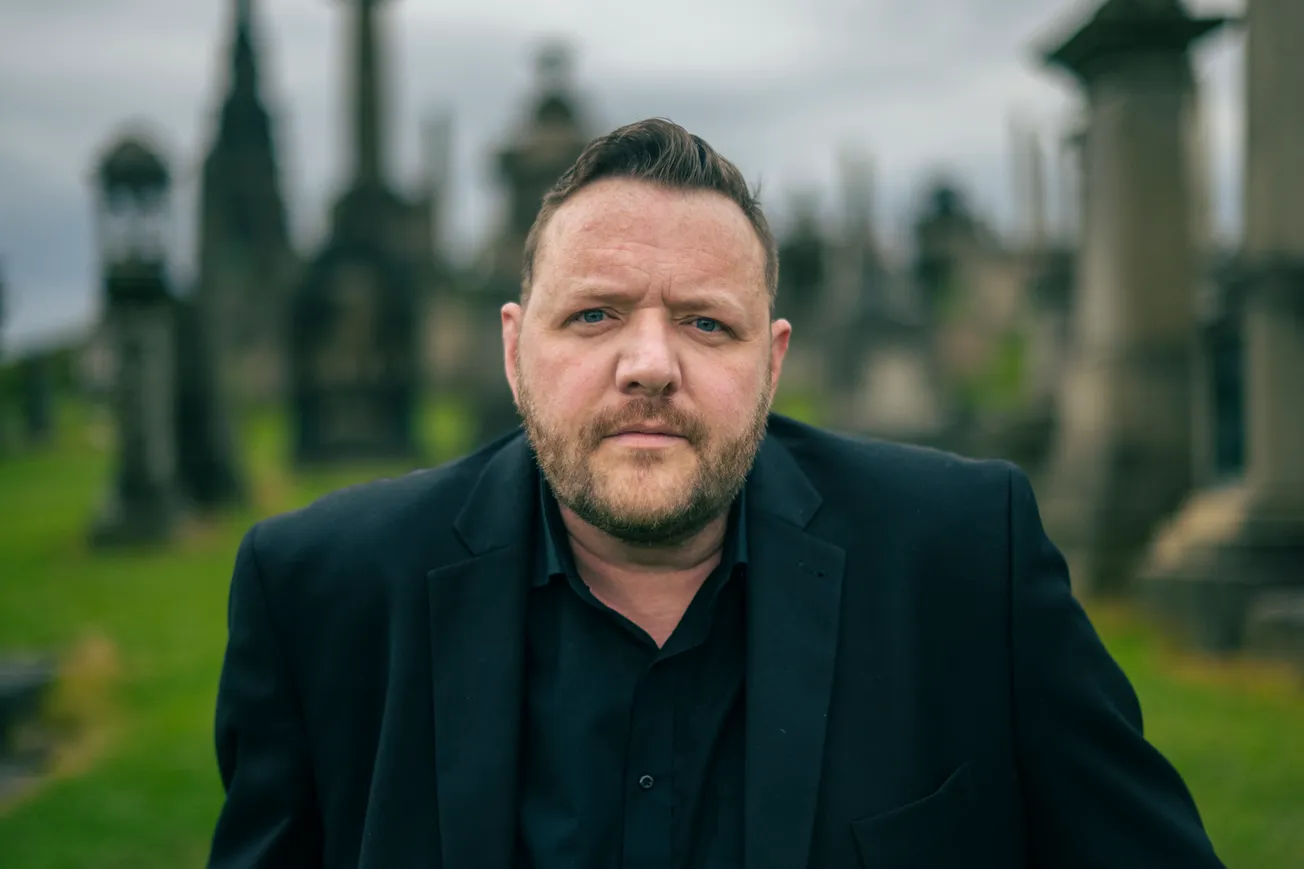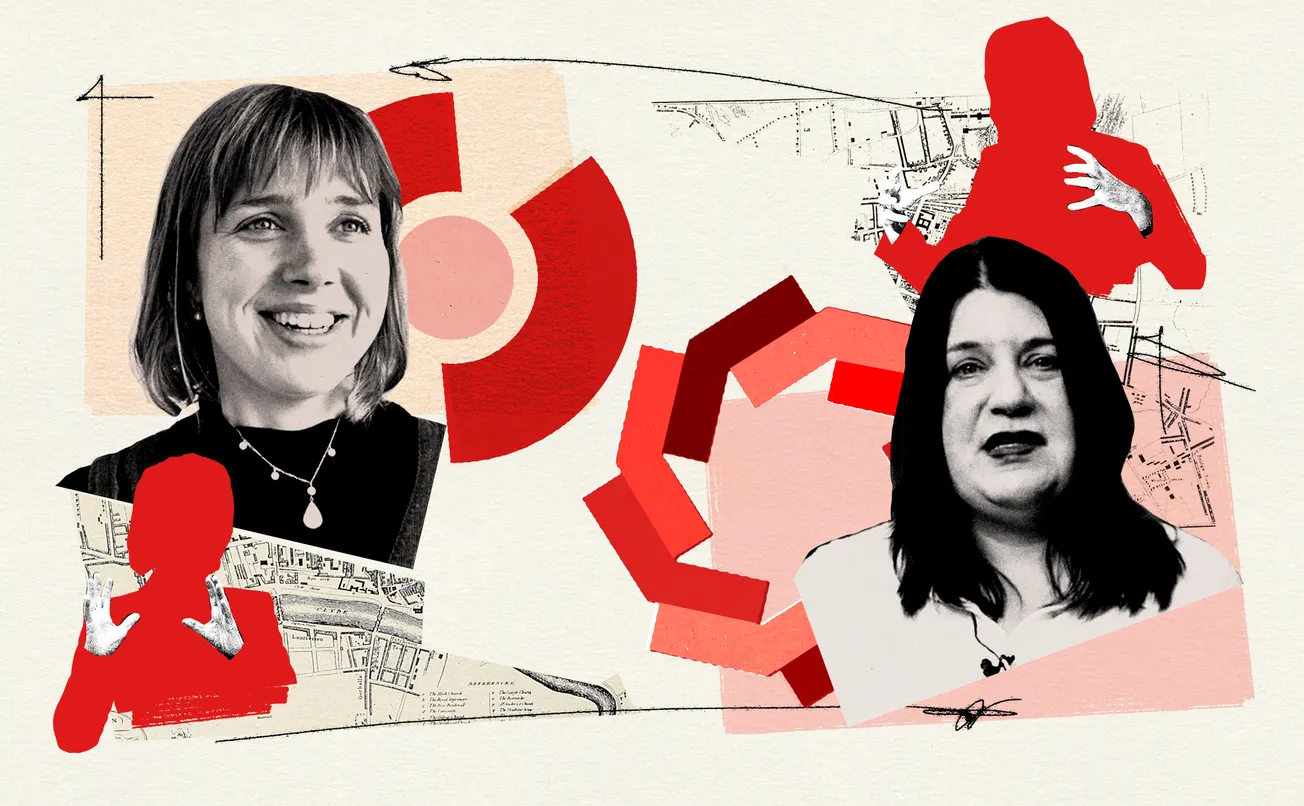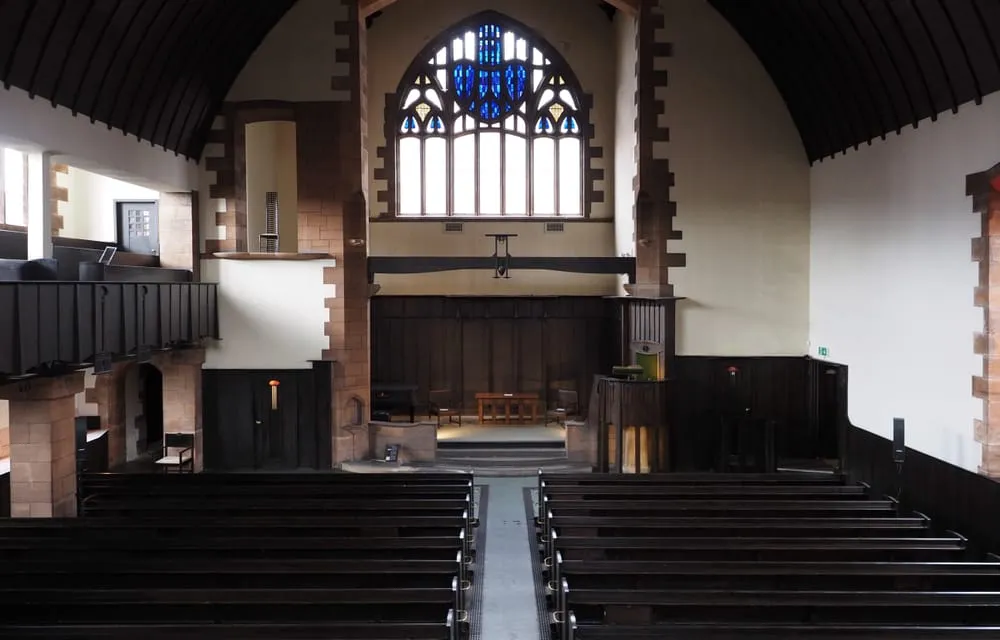What can you say about a subject everyone already thinks they know everything about? Best Kebab is comfortably the city’s most notorious takeaway. It is the stuff of urban folklore and tales told down the pub, memories of student days and well-lubricated walks home after a night out. Increasingly, it’s also fodder for viral online content. There’s the infamous Google reviews, the subReddit threads and tongue-in-cheek local news articles, of course. But post-pandemic, Best Kebab is more than that, it’s now a whole subgenre of shortform social media video.
When I first had the thought that a high quality new local newspaper was exactly what Glasgow needed, I must admit that a long read on a takeaway known for loosening its patrons bowels was not on the cards. Analysis and data on Glasgow’s fragmented bus system, sure. A deep dive into an almighty beef on Scotland’s canals, definitely. Investigations into suspicious fires and buildings at risk, no doubt. But 2,500 words on one of the city’s worst takeaways? I wouldn’t have bet on it.
And yet, the piece we put out about Best Kebab quickly became the most read thing we’ve done all year. Which has inevitably led me to wonder: why?
Now, a cynic might argue that I too have jumped on the Best Kebab content bandwagon. Perhaps. But as I looked into the story, I quickly became convinced that it was saying something important about the kind of city Glasgow is today.
I started to pay close attention as the opposition to Best Kebab turned from the odd drunken punter shouting ‘yer kebabs are shite’, to a coordinated campaign of harassment. Dozens of eggs were lobbed, knives were wielded, the police got involved. What, to most, had been a Glasgow oddity and long-running joke was growing increasingly toxic and building to a fever pitch. Where once the love/hate relationship with Best Kebab had been emblematic of the city’s penchant for a night out, a late-night drunken snack and a bit of a laugh — now it seemed to sum up the ways in which the algorithm rewards attention-grabbing but detrimental behaviour.
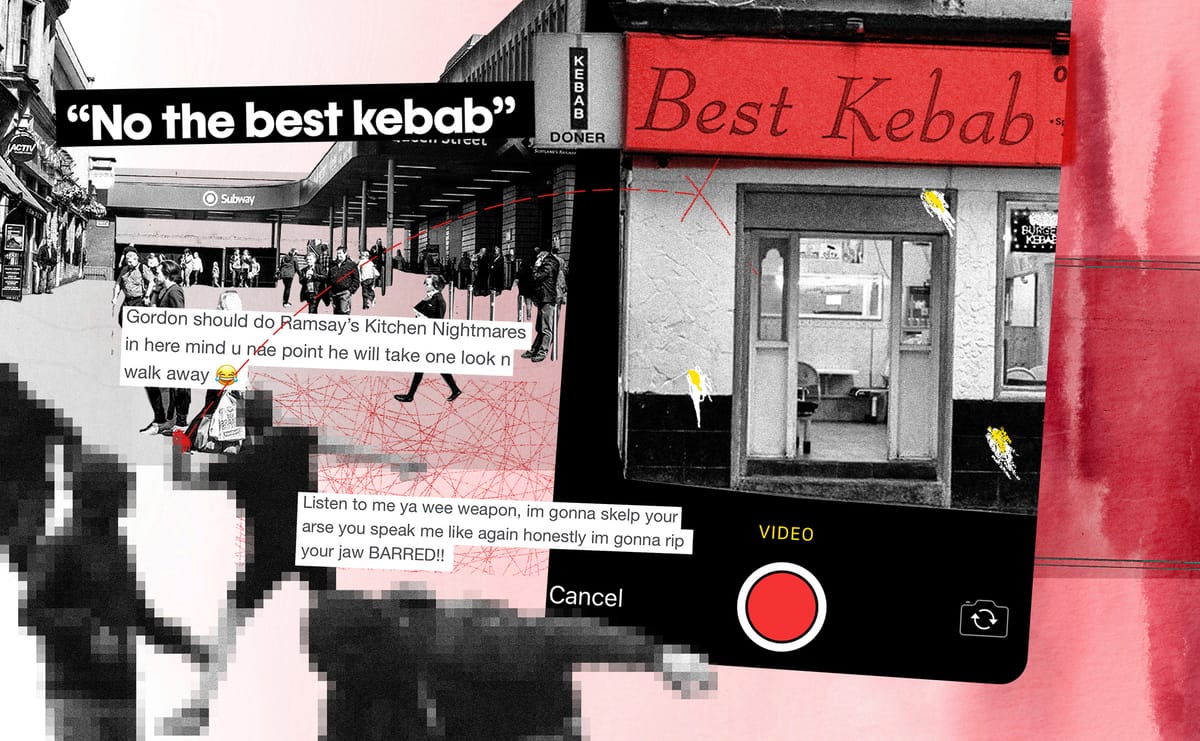
Now, I don’t think there’s another publication in Scotland — let alone Glasgow — that would commission an in-depth report into Best Kebab. I can already imagine the expressions on the faces of various editors had I pitched such a story to them. But this is where The Bell does things differently, picking up those stories that aren’t immediately breaking news, but feel like they capture something about the kind of city Glasgow is today. And that’s why we cover such a broad range of stories. In the past month or so, we’ve unmasked the neo-Nazi raising flags across north Glasgow, asked whether a feminist housing co-op can survive in 2025, published a dispatch from the homeless shelter waging war on the council and taken another forensic look into the accounts of the owners of one of Scotland’s largest bus operators.
Although these articles are all on completely different topics, there’s a secret sauce that goes into all the dishes at The Bell’s (metaphorical) kebab shop: time. To write the Best Kebab story as fairly as possible I must have paid seven visits over the course of a month. Three times, the shop was shuttered when it was meant to be open, and the other four times I was faced with the quandary of whether to even write the story, given Mr Best Kebab oscillated between refusing to speak to me and then proceeding to talk to me within the same breath. It also meant combing through Companies House, calling round takeaways, trawling through reviews, and spending an unhealthy amount of time on TikTok. [Editor’s note: I had to help Robbie set up an account].
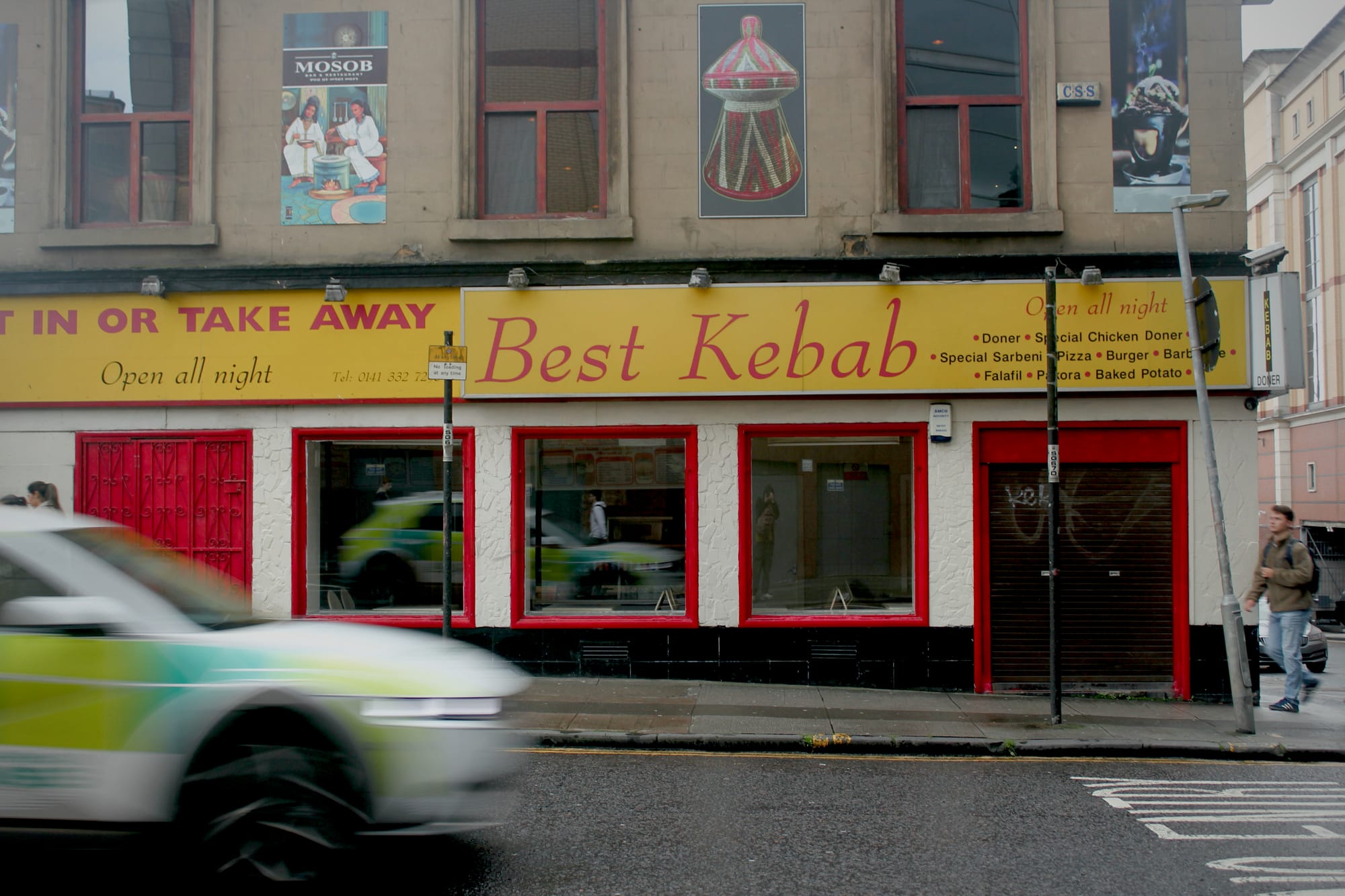
Of course, as the saying goes, time is money. It’s easy and cheap to turn around a quick story based on a couple of social media posts — you don’t even need to leave your desk. But old-fashioned reporting — knocking on actual doors, taking a two-hour round trip to follow up a speculative but possibly crucial tip — eats up time. Then there’s the editing process, with everything we publish going through several rounds of edits. We hope you feel that the result — both the depth and breadth of things we cover — makes all that time worthwhile.
But to meet those costs, we need backers. Not venture capitalists, mass media holding companies or offshore investment vehicles, but readers just like you: the people who tell us what we should write about and hold us accountable for what we publish. Our invitation to you is essentially this: to take a small stake in our enterprise, joining the hundreds of other locals who have done the same.
Already, The Bell is doing good work in breaking important stories and going much deeper on lots of topics. But together, we can build something bigger and bolder. With a larger team we could put much more time into investigations. We could write more features about the cultural life of the city and spend more time holding politicians and vested interests to account. But one step at a time. First, we just need to break even.
We currently have 960 paying supporters, which is huge. Our immediate goal now is to break through the 1,000 barrier. That would send a powerful statement about the kind of journalism people in Glasgow value, and want to get behind. We’d love to do it this weekend.
So, could you be one of those backers? Could you be one of the first thousand people to get behind The Bell (praised in years to come for your foresight)? Then join us today. And help us give this city the journalism it deserves.
Comments
How to comment:
If you are already a member,
click here to sign in
and leave a comment.
If you aren't a member,
sign up here
to be able to leave a comment.
To add your photo, click here to create a profile on Gravatar.

